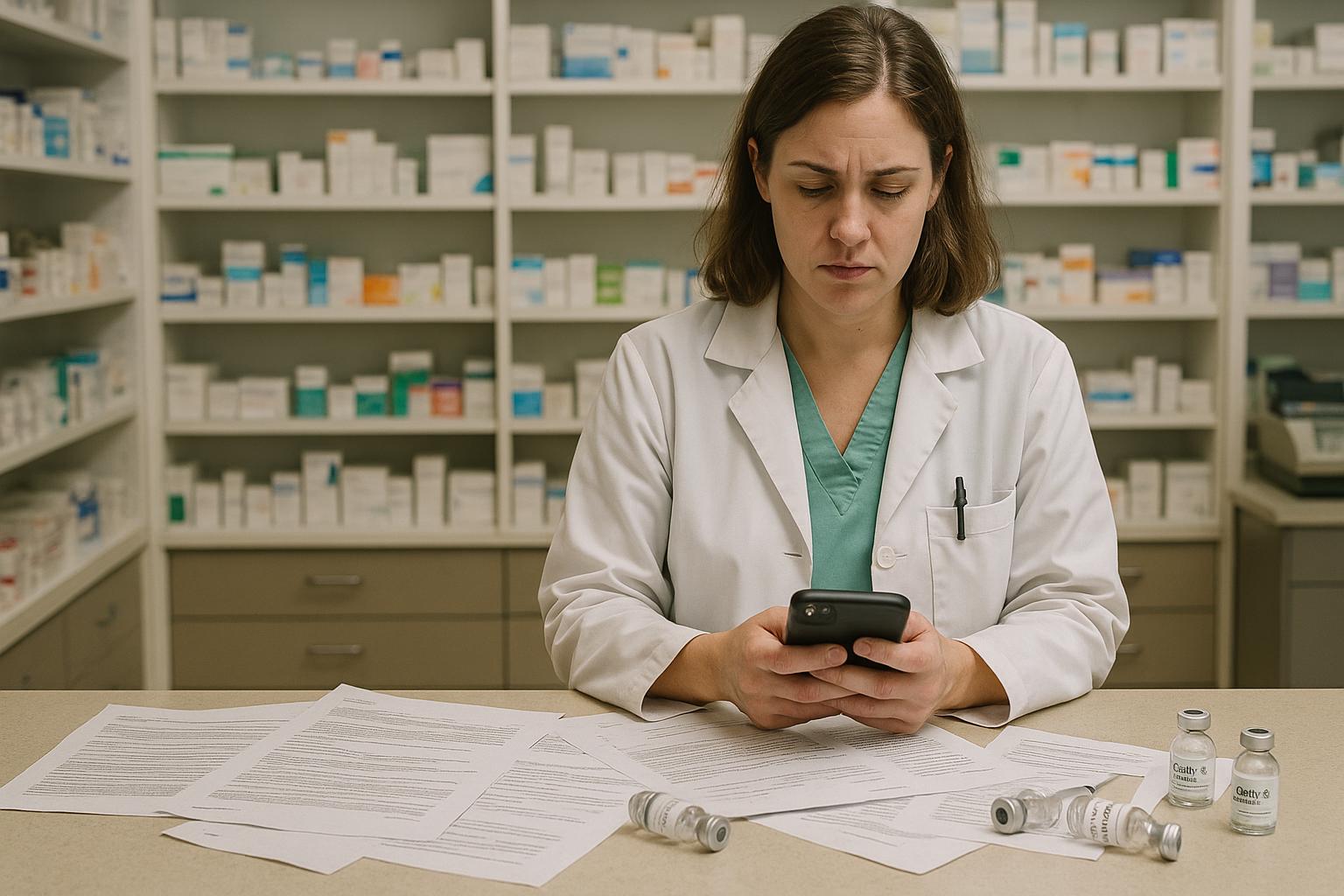Elderly patients in England are increasingly abusing pharmacists after being denied the Covid-19 vaccine on the NHS due to tightened eligibility rules introduced this year. The Joint Committee on Vaccination and Immunisation (JCVI) has limited free NHS Covid boosters to people aged 75 and over, the immunosuppressed, and those living in older adult care homes. This decision excludes a large cohort, particularly the 65 to 74-year-olds, unless they have a qualifying immunosuppressive condition. Pharmacies report that many in this age group are unaware of the change when booking online, leading to confrontations when they arrive for their vaccine appointments only to be told they must pay privately, at approximately £100, or wait until next winter.
According to the Independent Pharmacies Association, the communication around this policy shift by NHS officials has been poor, compounded by a confusing online booking system that allows patients to self-declare immunosuppression status but verifies eligibility only at the point of vaccination. Dr Leyla Hannbeck, Chief Executive of the Association, critiqued this development as a ‘false economy,’ emphasizing that last winter witnessed high hospitalisation rates from Covid and other winter viruses among the elderly. Pharmacy teams are now frequently subjected to aggressive behaviour, including verbal abuse and even physical hostility, a situation Dr Hannbeck deemed unacceptable and unfair to frontline healthcare workers.
Government bodies have defended the policy, with NHS England and the Department of Health and Social Care (DHSC) reiterating that the JCVI's guidance is based on scientific evidence and cost-effectiveness. The DHSC notes that population immunity remains high, and additional doses provide limited protection against transmission, justifying the focus on the most vulnerable groups. The NHS website clearly states eligibility criteria, advising patients to check before booking and to self-declare only if eligible. Despite this, confusion persists, especially as the UK faces rising hospitalisation rates linked to a new Covid variant known as XFG. While there is no evidence that the variant causes more severe disease, data from the UK Health Security Agency shows Covid hospital admissions rising by 60 percent recently, with 1,216 patients hospitalised by the end of August.
The stricter criteria for NHS Covid vaccine eligibility have sparked debate, particularly given the increased demand for flu vaccinations in the same older age groups. Last winter’s flu vaccine uptake fell significantly, even as flu-related deaths soared to a 40-year high. This divergence in vaccine policy has left many aged 65 to 74 eligible for free flu jabs but excluded from free Covid boosters, raising concerns over public health and the potential for heightened winter illness burden.
Pharmacists have long been crucial in the Covid vaccination effort. However, this role has faced multiple challenges beyond patient frustration. Previous reports highlighted systemic issues such as delays and reduced uptake caused by a confusing booking system and occasional vaccine supply disruptions. Moreover, a lack of smooth collaboration with General Practitioners has hindered pharmacy-led initiatives designed to alleviate pressures on frontline healthcare services. For example, the ‘Pharmacy First’ scheme, aimed at enabling pharmacists to treat common conditions and reduce GP workload, has suffered from a lack of GP referrals, affecting access and patient care continuity.
The pandemic has also taken a significant toll on pharmacy professionals themselves. There have been tragic instances, such as the recent case of an NHS pharmacist who died by suicide after suffering debilitating complications from a Covid jab and being denied compensation. This case has prompted calls for reform of the government’s Vaccine Damage Payment Scheme to better support those adversely affected.
Adding to the complexity, certain patients with specific medical conditions or allergies have faced difficulties in accessing suitable Covid vaccines. For instance, some elderly individuals allergic to both Pfizer and Moderna vaccines were left without NHS booster options when alternative vaccines like Novavax were withdrawn from the programme due to cost considerations. Such cases highlight ongoing challenges in balancing policy decisions, vaccine availability, and individual patient needs.
As the UK moves forward with its vaccination strategy, the current policy focusing Covid boosters on the very elderly and immunosuppressed aims to protect those at greatest risk of severe disease while managing healthcare resources effectively. However, the resulting confusion, patient frustration, and frontline stress underscore the need for clearer communication, more inclusive planning, and continued support for the entire healthcare workforce, including pharmacists, who remain key to the nation’s public health response.
📌 Reference Map:
- Paragraph 1 – [1], [2], [7]
- Paragraph 2 – [1]
- Paragraph 3 – [1], [2]
- Paragraph 4 – [2], [1]
- Paragraph 5 – [3], [1]
- Paragraph 6 – [6], [1]
- Paragraph 7 – [7], [1]
- Paragraph 8 – [1], [2]
Source: Noah Wire Services
